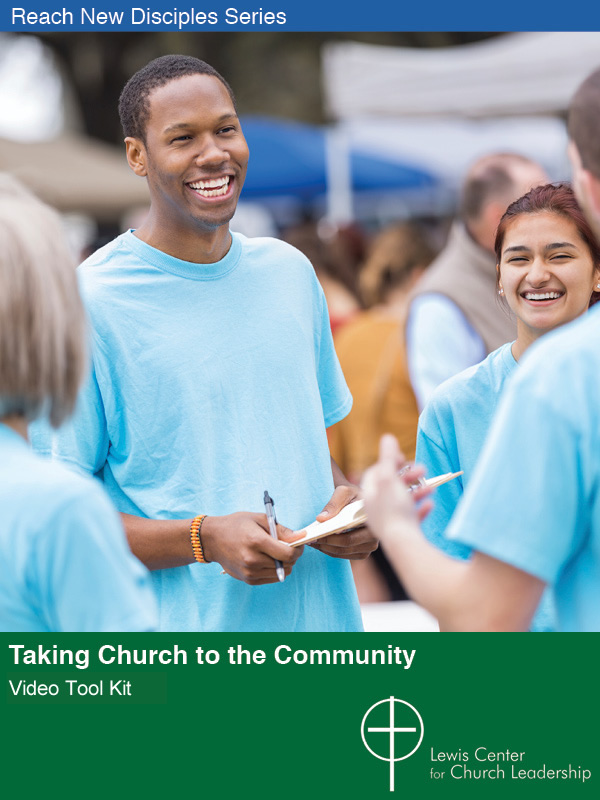Churches often welcome young adults with such urgency and expectation that younger visitors can feel overwhelmed. Scott Chrostek, pastor of Resurrection Downtown, says it is actually more hospitable to maintain their sense of anonymity and personal privacy in worship — to help them blend in and feel comfortable without attracting undue attention.
There is an urgency fueling churches these days. Churches are so eager to welcome young people that in their welcome, they too quickly move into pleas for deep commitment. In their haste to be welcoming, churches and their leaders are actually compromising their ability to be hospitable. In the hopes of securing participation and involvement from younger people, they end up singling out an entire segment of the population. Young adults leave feeling as though the church doesn’t want them there in the hopes that they could meet God; they want them there simply to help them grow the church.
People must be made to feel comfortable in worship by thinking that nobody is watching, and they must be given proper instruction to the extent that they know the importance of why we do the things we do and how to do them so that they won’t draw any unwarranted attention by participating.
This is self-serving, alienating, and isolating, rather than hospitable. It forces young people into a place where they feel as though they are standing out in a crowd even more than they already are. This becomes especially harmful when these same churches don’t apply the same type of urgency or expectation to every first-time visitor, just the young adults.
After several failed attempts at finding the “right” church, my sister Jill, who is approaching her thirties, shared with me that she longs to become a part of a church that is friendly and hospitable to all people, regardless of where they come from or what they’ve been through. But she wants her church also to foster a sense of anonymity. Meaning, she wants to be welcomed and made to feel at home and then she wants to be able to hide, to be anonymous, or free to go at her own pace or sink into the rhythm and practices of the church. She longs for anonymity.
In the same way that everyone must be welcomed, recognized, and made to feel at home, churches and their leaders must also cultivate a feeling of anonymity within the environment. A key to facilitating anonymity is preserving a sense of personal privacy within the worshipping congregation. People must be made to feel comfortable in worship by thinking that nobody is watching, and they must be given proper instruction to the extent that they know the importance of why we do the things we do and how to do them so that they won’t draw any unwarranted attention by participating. To accomplish this, there are several things leaders can do beyond restraining our desire to secure deep commitment from Millennials after their first encounter.
1. Don’t assume everyone is on the same page.
There are a lot of customs and rituals that happen in worship that don’t happen anywhere else in the world. If you stop to think about it, the church is the only place where people are invited to sing aloud to songs they do not know in front of total strangers. Additionally, we have people regularly stand up, sit down, and sometimes kneel over the course of an hour. In that same time, we’ll invite people to introduce themselves to perfect strangers. We’ll instruct them to “pass the peace”; we have people put their money in a plate that passes by, and we have them take bread, dip it into a cup of grape juice, and eat it. In worship, we have people do all of these things that don’t happen anywhere else in their daily lives and hope they feel comfortable doing so. For this to happen, we need to create a sense of anonymity.
2. Adjust the lighting and sound.
One of the easiest ways congregations can seek to create this sense of anonymity is by taking measures to dim the sanctuary lights so that visibility within the congregation is reduced. In a low-lit sanctuary, worship participants can experience an environment where one might feel free to cry, laugh, sing, or even fall asleep without the fear of everyone noticing, including the pastor. Increasing the light levels on the chancel or stage will do the same thing. It will preserve anonymity by drawing all attention forward, and using a centrally located screen or pulpit will enhance our focus toward the front and reduce the distraction of wandering eyes. Boosting volume within the sanctuary has the same effect. If there are ways you can help people to sing, it’s by drowning their fear of being heard with a loud house.
3. Over-explain the elements of worship.
Another way to create a space where one can feel anonymous is through the use of context or over-explaining all movement and activity within the worship service. One of the easiest ways to be noticed as an outsider in a worship service occurs every time someone is unsure of what he or she is supposed to do or how they should act. Context is how we explain and offer instruction as to the how and why of what we do. Worship leaders should introduce the songs we sing with a backstory and inspired intentionality as to why they chose this song for worship. Similarly, pastors should take responsibility for explaining the importance of prayer before inviting congregations to pray and display the words to any congregational prayers or recited creed. Finally, we should unpack the offering as opposed to passing the plates and expecting people to instinctively know what to do.
These are simple ways to help people blend in, feel comfortable, and allow them to understand the why and how of worship so that they can participate fully without drawing undue attention upon themselves.
This material is adapted from Scott Crostek’s book The Kaleidoscope Effect: What Emerging Generations Seek in Leaders (Abingdon Press, 2017). Used by permission. The book is available at Cokesbury and Amazon.
Related Resources
- 5 Keys to Cultivating an Environment Irresistible to Emerging Generations by Scott Chrostek
- Lessons from Churches that Reach Young Adults by Lovett H. Weems, Jr.
- 10 Qualities Your Church Doesn’t Need to Grow Young by Kara Powell, Brad Griffin and Jake Mulder







